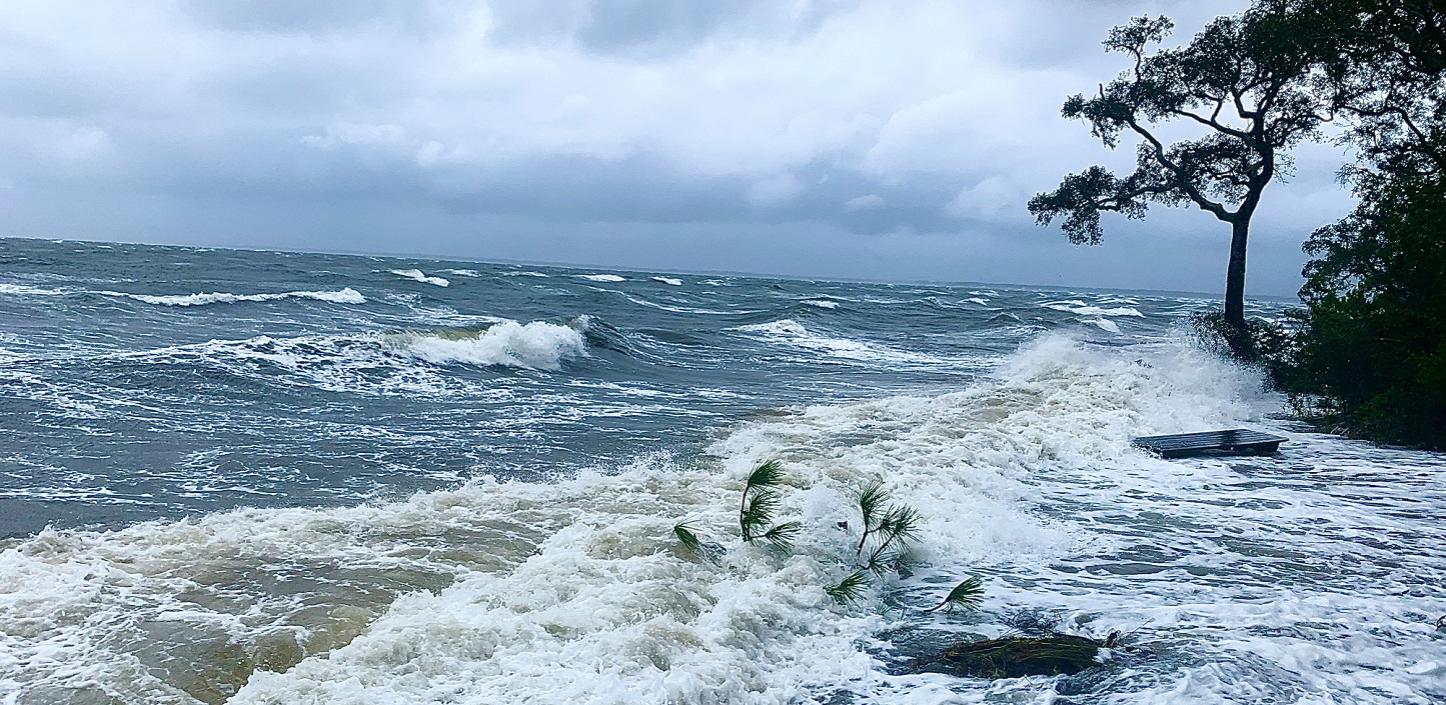
NFWF and NOAA Announce $1.6 Million in Grants to Aid Communities Affected by the 2020-2021 Hurricane Season
Hurricane Response Fund Offers Help for Marine Debris Removal
WASHINGTON, D.C. (December 13, 2022) – The National Fish and Wildlife Foundation (NFWF) and National Oceanic and Atmospheric Administration (NOAA) Marine Debris Program today announced five grants totaling $1.6 million for the assessment, removal, and proper disposal of marine debris related to the 2020-2021 hurricane season. Contributions from the grantees will bring the total conservation impact to nearly $2.4 million.
Storms can cause significant marine debris, including capsized vessels, displaced fishing gear, and wrecked docks and piers, along with flooding that deposits large land-based debris such as trees, cars, and parts of homes and buildings. This debris can cause both immediate and prolonged harm to coastal communities, affecting navigation safety and coastal and marine industry and tourism. Marine debris can also harm wildlife and damage habitats.
“These projects will enhance coastal resilience and strengthen the blue economy. Removing marine debris will allow the environment to recover, support commercial fishing communities, and enable residents and tourists to once again enjoy recreational opportunities on the shoreline and on the water,” said Nicole LeBoeuf, director of NOAA’s National Ocean Service. “We are pleased to provide this funding to support the recovery of the affected communities.”
NFWF, in partnership with NOAA, launched the Hurricane Response Marine Debris Removal Fund in 2019 to support on-the-ground projects to assess, remove, and dispose of debris created or moved by storms. Grant awards will help coastal communities fill in the gaps of other available funding to clean up their coasts and waterways of potentially damaging debris.
“Storm debris from Hurricanes Ida, Laura, Delta and Sally continue to cause significant navigation and hydrology problems in impacted coastal waters and environments, and we are only beginning to understand the dramatic, long-term impact of Hurricane Ian,” said Jeff Trandahl, executive director and CEO of NFWF. “The Hurricane Response Marine Debris Removal Fund provides critical funding to help communities prevent erosion and habitat loss following hurricanes and support longer term restoration efforts in impacted areas for the benefit of both wildlife and human communities.”
The projects supported by the five grants announced today will remove and dispose of large-scale vessels in marine habitats of Alabama, derelict and abandoned vessels and marine debris from coastal habitats in Louisiana, and derelict crab traps along the coastal shorelines of Mississippi. Grants for this fund are awarded based on how marine debris can harm coastal communities and resources, and to prevent further damage to sensitive marine habitats and species listed under the Endangered Species Act.
A complete list of the grants made through the Hurricane Response Marine Debris Removal Fund is available here.
Congress provided funding under the Extending Government Funding and Delivering Emergency Assistance Act, 2021, Pub. L. 117-43 for NOAA to assess and remove marine debris from hurricanes in 2020 and 2021. These grants were then awarded through the Hurricane Response Marine Debris Removal Fund.
About the National Fish and Wildlife Foundation
Chartered by Congress in 1984, the National Fish and Wildlife Foundation (NFWF) protects and restores the nation’s fish, wildlife, plants and habitats. Working with federal, corporate, foundation and individual partners, NFWF has funded more than 6,000 organizations and generated a total conservation impact of $7.4 billion. Learn more at www.nfwf.org.
About NOAA
Climate, weather, and water affect all life on our ocean planet. NOAA’s mission is to understand and predict our changing environment, from the deep sea to outer space, and to manage and conserve America’s coastal and marine resources. See how NOAA science, services, and stewardship benefit your community: Visit noaa.gov for our latest news and features, and join us on social media.
###
Contact:
Rob Blumenthal, 202-857-0166, NFWF, rob.blumenthal@nfwf.org
Jennie Lyons, 202-603-9372, NOAA, jennie.lyons@noaa.gov